How Hannah Cockcroft took her first push to Paralympic glory with Whizz Kidz
We talk to the para athletics champ about her quest for gold and why she wants a young wheelchair user to take her place someday
“Gold. I want to win gold. I don’t believe in going to a games and wanting anything less than the best. It will be very difficult, and it is getting harder and harder every year, but I have got to go there. I believe I can do it, and I hope I can.”
When we asked Hannah Cockcroft what her goal for the Paralympics in Paris was, the answer was only ever going to come in one colour. She’s been GB’s golden girl since she stormed to a record-breaking victory in the Women's 100m T34 Final at London 2012, her debut Paralympics, aged 20. It was also the UK’s first athletics gold at the iconic games that were so influential in showcasing Paralympic sport to a wider audience. Hannah became a instant sporting superstar, confirmed when she blew away the competition again in the 200m a week later. No wonder she was named Hurricane Hannah by the press.
More deep yellow precious metal followed with five Paralympic golds in Rio and Toyko, 14 World Championship Golds, three European championships, and a Commonwealth title. She’s broken the world and Paralympic record seven times across 100, 200, 400 and 800 metres. She’s got an MBE and an OBE. She even won Sport Relief's Strictly Come Dancing to give her trophy collection more variety.
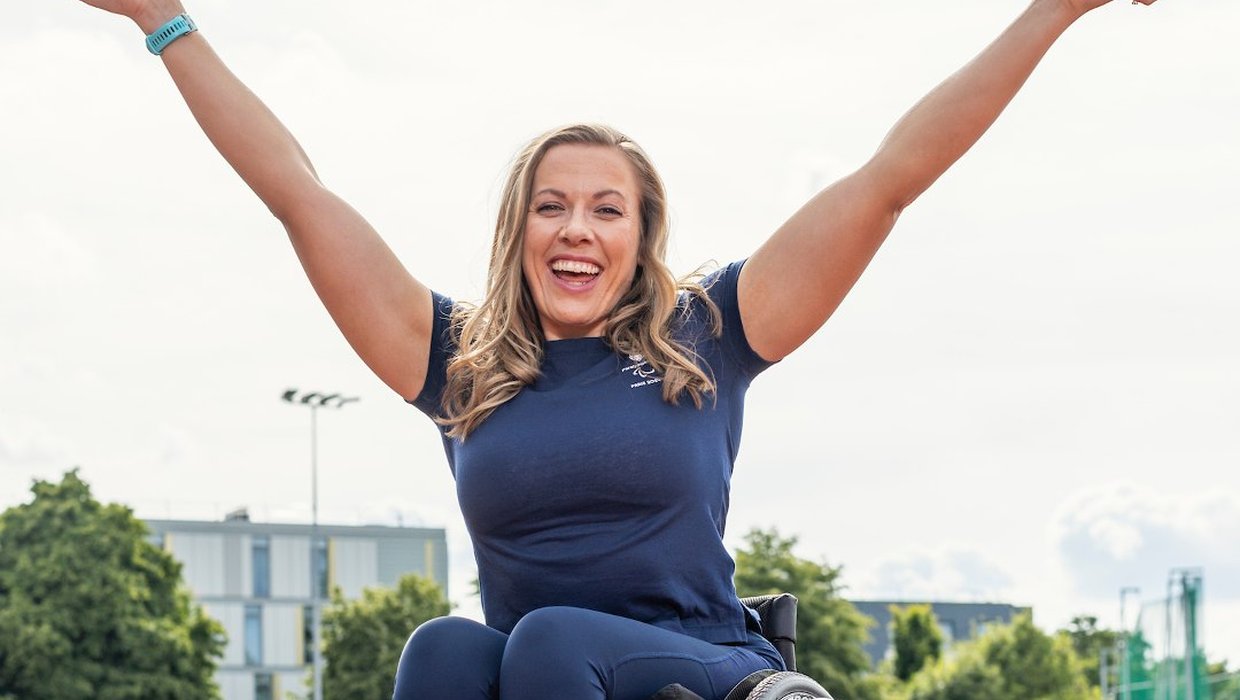

So we’re very proud that she’s a former Whizz Kid. Hannah received her first sports wheelchair through the charity when she was 13. “Whizz Kidz made a massive difference,” she says. When she started disability sports at 12, she found the only chairs on offer “were built for grown men, so for a little girl, it didn’t feel very welcoming.
“Whizz Kidz stepped in… and changed my whole outlook on what I could do and what was available to me. My first steps into wheelchair racing were in that chair. I used to go to a track and do wheelchair slalom in that chair, and it was amazing for me to have a wheelchair that fitted well and I could move; it made me quicker on the court, and it helped me to believe I could do something good, rather than a wheelchair was there to hold me back. So, Whizz Kidz changed a lot of things for me.”
We’ve been so grateful for Hannah’s support as an advocate and ambassador for the charity over the last 15 years. As she looks to extend her unbeaten record at the Paris Paralympics 2024 by retaining her T34 100m and 800m titles, we wanted to know more about what the games mean to her and what message she has for young wheelchair users.
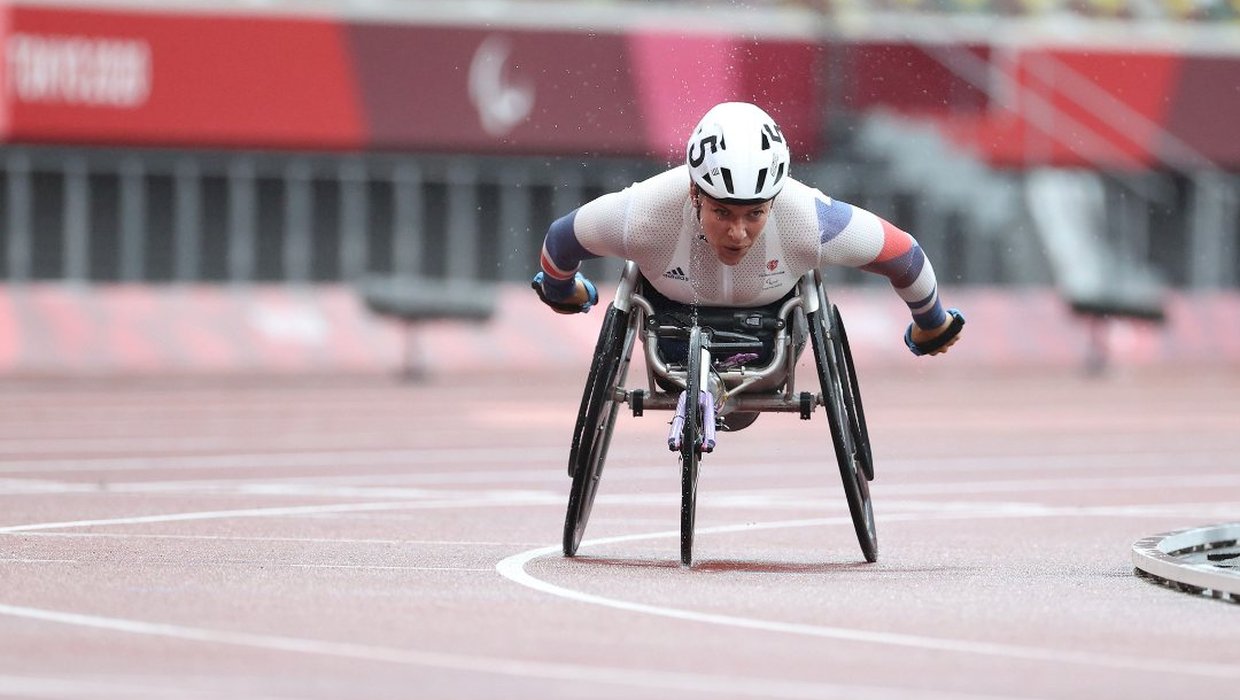

What do the Paralympics mean to you?
The Paralympics mean everything to me. Being a Paralympian changed my life, and just the experience I have had through being able to go to a Paralympics has been absolutely incredible. And for me, they are just such a symbol of freedom and pride in what we can do and pride in showing the world that disabled people are no less than everybody else. We can be just as successful and just as strong, and we can do everything; we just do it slightly differently. Every four years, when it comes around, everyone feels that pride. Everyone feels like they want to get involved in what we do. So, the Paralympics does mean everything to me because it means so many different things.
At what moment did it click for you, and you knew this was your sport?
So, I tried lots of different sports. Whizz Kidz actually provided my first-ever sports chair, which was a basketball chair. Basketball was my first sport, and I moved into discus. I found wheelchair racing when I was 15. I think the thing that drew me to it was that I could do it myself. I was 15, and I still had to allow my parents to help me with a lot of things. I didn’t have that much independence, and I am a very independent person, so being out on the track on my own, knowing that every win was mine, every loss was mine, I had to fix that, and there was no one around me who could do the job for me.
I think that is what I fell in love with, that and the speed, obviously, getting to go fast. I didn’t have a great fitting everyday wheelchair growing up. I hated using it, and it was difficult, but when I got in a racing chair, it gave me this freedom I had never felt before. I absolutely loved being able to get everywhere quickly and being faster than other people and having the opportunity to do that and that’s why I fell in love with wheelchair racing.
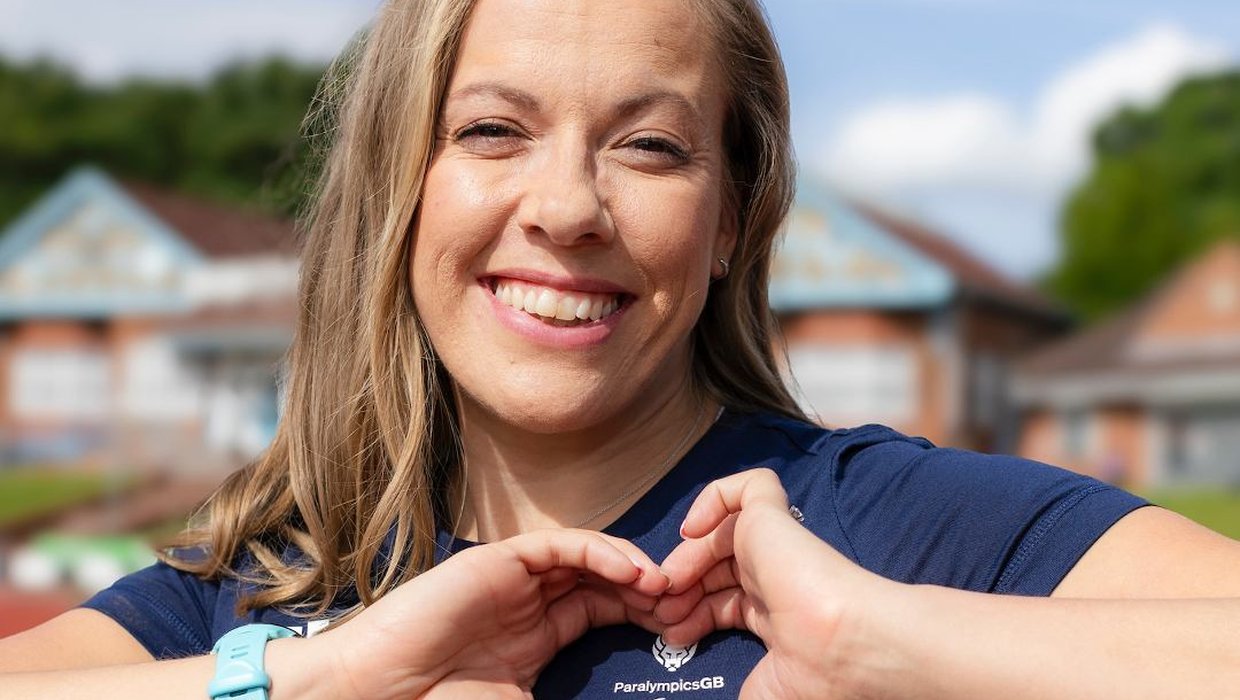

Can you tell us a bit about the specialist race chair that you have?
The race chair has three wheels. It has a carbon fibre frame and wheels. It’s from America, a brand called Top End, and it was built for speed. We have a camber on the back wheel, so we won’t tip over too easily when we are going around the bend at speed. We have the steering, which is kind of like bike steering, but there is also a triangular lever underneath the steering called the compensator. That’s the thing you will see when we are sprinting on the track. Everyone, when they get to a bend or a straight, hits their chair, they hit the compensator as that holds your steering in line and does the steering for you on the track.
They are custom-made to fit you, but that does not mean they are comfortable. They are built for speed, so they are as uncomfortable as they look!
What would you say to young wheelchair users who are considering getting into racing?
I would say give it a go and don’t rush into making any judgement. You can’t make a decision without trying it, so try as many sports as you can, and wheelchair racing can be one of them, but just say yes to any opportunities you can get your hands on.
With wheelchair racing, just find a local club. These are now popping up around the country. If you can’t find one, feel free to reach out to me, and I will point you in the right direction. But give it a go. It is great fun, and everyone is really, really friendly. It could change your life like it did mine!
I am not going to last forever, so someone is going to need to take my place someday!
Did you have an influence or someone you looked up to in terms of the Paralympics?
When I started wheelchair racing, it was just by chance that I got invited to a come-and-try day at Loughborough University. And wheelchair racing was there, so I jumped in a chair and gave it a go. Once I was in the chair, the chair that I borrowed was [Paralympian legend] Tanni Grey–Thompson’s, so that was a good way to start and that automatically makes Tanni your hero and idol. She was the one I leant on a lot for advice in those beginning years, and it just opened me up to this whole world of these absolutely amazing people who do incredible things in their chairs.
What would you like young wheelchair users to take away from the Paralympics when they watch it?
Number one, I want them to enjoy it. I just want them to watch disability sports like any other sport. Just watch it and be in awe of what the athletes can do because they worked incredibly hard to get on that stage, give that performance, and have their eyes open to what is available.
Even watching the Olympics at the moment, I have found myself watching things and thinking, oh wow, I didn’t even know that was a sport. People will see that even more at the Paralympics so enjoy it all and if there is a sport that takes your fancy, like something you have never seen or something that you have ever heard of, the athletes in Paralympics GB are so friendly, and every single one of them you reached out to would get back to you and tell you how to get involved in their sport. So don’t be afraid, watch everything, and reach out to the athletes if you want to give it a go because, ultimately, we want to show everybody what we can do. We want to show everybody what’s available to them because I am not going to last forever, so someone is going to need to take my place someday!
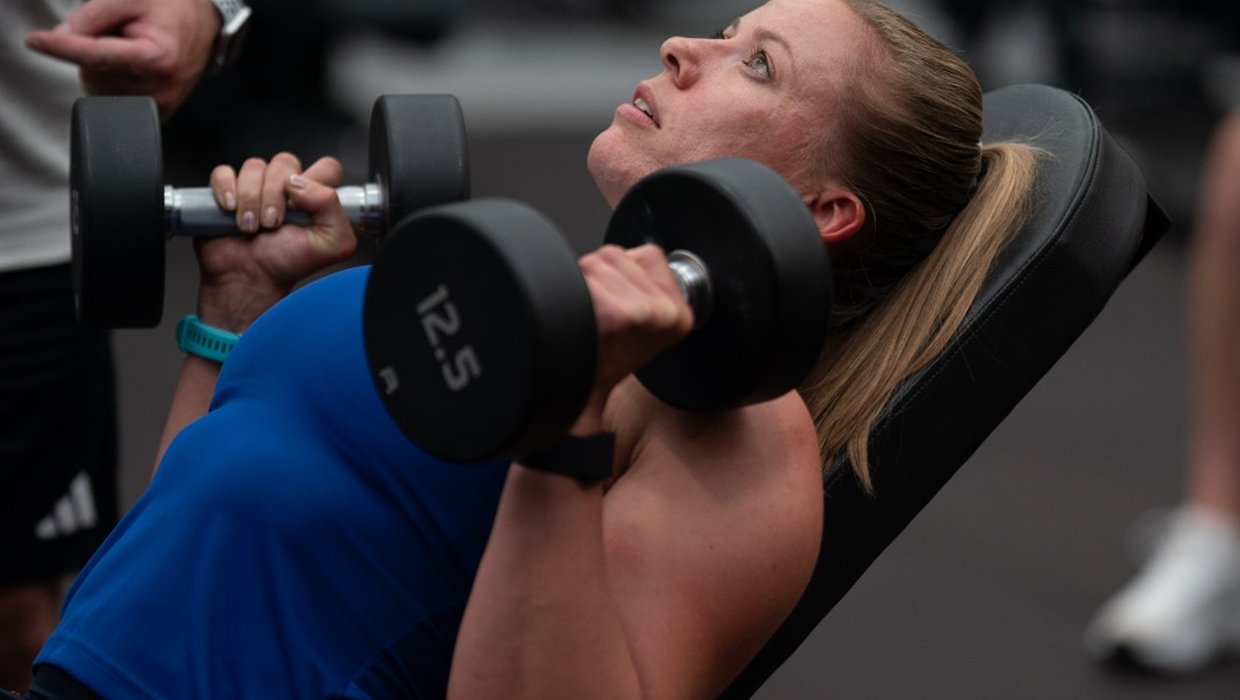
Hannah lifting weights in the pre-Paris training camp

Obviously, you have yet to see the one in Paris, but from your previous experiences, what was the coolest thing about the athlete's village?
I think the coolest thing, and everyone will say it, is the food hall. You just go in, and you can have a full meal 24 hours a day, and there is an endless choice. It is just dangerous, to be honest, but it is amazing, and I think that was the first place when I went to my first games in 2012 in London. That was the place where the enormity of where I was hit me because you see so many different people from so many different nations with so many different disabilities. It is just something you would not see anywhere else, and the food hall brings everyone together. But everything about the village is special, from sharing apartments and rooms with some of your best friends to the games centre, which is great fun, and the little merchandise shops and even a salon to get your hair and nails done. You have everything on offer. I love it, and I really can’t wait.
You have done a lot to support Whizz Kidz over the years. What are your favourite memories?
I remember with Whizz Kidz, I visited 10 Downing Street to deliver a manifesto and that was good fun. I got introduced to Tom Fletcher from McFly through Whizz Kidz, and I am a massive McFly fan, so that was the best thing ever. I have been involved with the Kidz Board, and they really inspired me to hear what ideas and dreams they have. You can very quickly, in my position, forget where you came from, and so they were all able to remind me that what I do is an absolute dream come true, so to listen to their dreams was an absolute pleasure.
Finally, do you have any good luck charms or other rituals that come into play when you are competing?
I used to have loads of rituals and routines, but I had a really bad season in 2018, and I just realised that no amount of lucky socks or songs or whatever is going to really affect how I race, so I stripped back a lot of them. I wear the same earrings from 2012 that my mum bought me, and I eat strawberry laces, and that’s it.
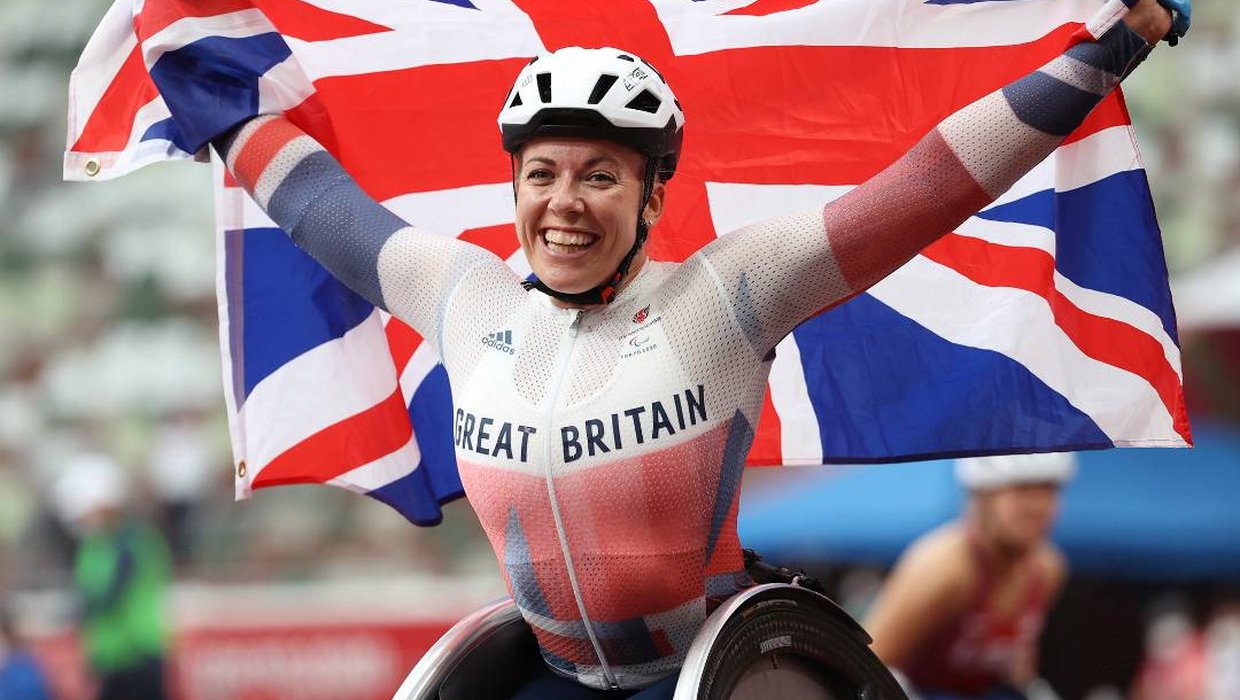

Cheer on Hannah with us in the Paralympics Games Paris 2024, between 28 August and 8 September. Get the full schedule of events here and watch all the action live on Channel 4.


